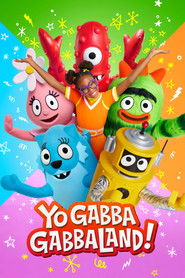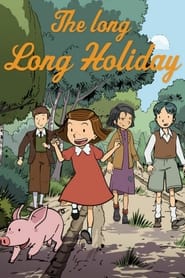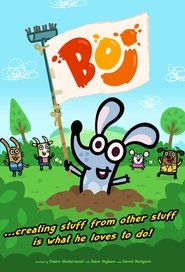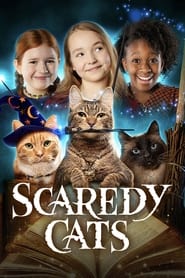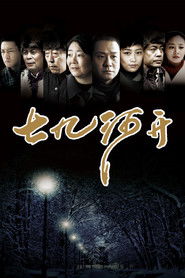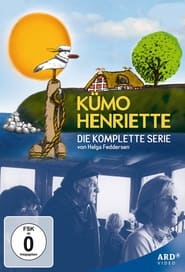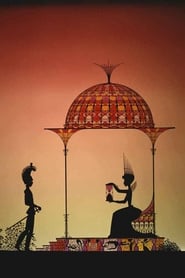Popular Family TV Series on Pantaflix - Page 142
-
Yo Gabba GabbaLand!
2024
Yo Gabba GabbaLand!
2024
star 6.8Step inside a fantastic land of fun and imagination with Kammy Kam and her beloved friends! Through music and magic, they learn about their world and unlock limitless wonder. -
Trials of Life
1990
Trials of Life
1990
star 8.4Each of the twelve 50-minute episodes features a different aspect of the journey through life, from birth to adulthood and continuation of the species through reproduction. -
The VeggieTales Show
2019
The VeggieTales Show
2019
star 4Bob, Larry and all your Veggie friends return in an all new television series. Bob and Larry use Mr.Nezzer's theatre to put on various performances based on stories from the Bible. -
37.5°C Tears
2015
37.5°C Tears
2015
star 2Sugisaki Momoko used to be a nursery school teacher. Her difficulty smiling leads to communication problems with parents and her contract is terminated in one year. Momoko is picked up by ‘Little Snow’, a home care service for sick children, and makes a fresh start there as a caregiver. When a child has a fever, the caregiver would visit the home and care for the child in place of the parents who simply cannot take time off from work. Momoko encounters all sorts of families at the places she is sent to. With the support of her colleagues and the occasional help of her best friend, Yumika, she starts to face work, romance, family and friendship. -
The Long, Long Holiday
2015
star 8.7In September 1939, Colette and Ernest are welcomed by their maternal grandparents in a fictional village named Grangeville, near Dieppe in Normandy. The short vacation becomes semi-permanent when their father goes off to fight, following the mobilization of France to fight the invading German Army, and the poor health of their mother, required to leave to be treated for tuberculosis in a sanatorium in Switzerland. The two little Parisians discover life in the countryside during wartime, including occupation, Resistance, deprivation, but also life with friends. -
The Kwoks And What
2021
The Kwoks And What
2021
star 2Seasoned Chinese frog closure instructor Kwok-Law Mei-lan has raised her children and grandchildren by herself. She discovers everybody’s issues before her 70th birthday. Her eldest son Kwok Tak-kan’s business has failed, and he is also divorcing his wife Tian Yu-fei. Her second daughter Kwok Tak-bo and her son Kwok King-hin are drifting apart, and her relationship with her boyfriend has also ended. Her youngest son Kwok Tak-ming loses his job as Tak-kan has got him into trouble. While Mei-lan wants to help her children solve their problems, she also plans to team up with her favorite disciple Chong Zi-chang to pass down the craft. Meanwhile, Tak-kan and his siblings keep contradicting each other. And gangster Kwok Chung-shek abruptly shows up and claims he has 50% ownership of the Kwoks’ property. Can Mei-lan’s strict adherence to the Kwoks motto “Keep walking and there’s a way out” unite family members in the confrontation against the enemy? -
Hayat Devam Ediyor
2011
-
Sayonara, Maestro!
2024
Sayonara, Maestro!
2024
star 7.5Ever since gifted conductor Natsume’s wife and daughter left him five years ago, he has isolated himself from the music scene. Then one day, he decides to return to Japan for the first time in decades to conduct a small town orchestra and return to his estranged daughter, Hibiki, who loathes him and his music. Now he must try to thaw a relationship with his daughter frozen in time for five years, and learn to be a father. -
Angel's Revenge
2014
Angel's Revenge
2014
star 1.8Lee Seon-yoo is training to become a nun. Right before she finally gets her wish, she learns that her beloved older sister Jin-yoo has died. Jin-yoo was betrayed and killed by her lover, Jang Tae-jung. Tae-jung, a smart, good-looking man from a humble background, had committed himself to luring and marrying a tycoon's daughter "against all odds," as part of an effort to get him into the upper class of society. Seon-yoo then meets Seo Ji-seok, an immature man from a rich family whose sister Ji-hee is married to Tae-jung. Ji-seok is at risk of losing the inherited family business to Tae-jung and Ji-hee, since Ji-seok's mother is the family patriarch's second wife. To take revenge on the man responsible for her sister's death, Seon-yoo gives up her dream of becoming a nun. She marries Ji-seok, and becomes Tae-jung's sister-in-law. Thus, Seon-yoo begins leading a double life: she pretends to be the ideal wife and daughter-in-law in front of the Seo family, and only takes off her mask in front of Tae-jung, proving she -
Glorious Day
2014
-
Ellen's Game of Games
2017
star 7.1An hour of supersized versions of the most popular and hilariously fun games from The Ellen DeGeneres Show. Contestants, pulled right from the audience, will have to maneuver massive obstacles, answer questions under immense pressure and face a gigantic plunge into the unknown. -
Boj
2014
Boj
2014
Boj, a rare marsupial from the Australian Outback, has moved to Giggly Park, where he lives in an underground burrow with his musical parents, Mimi and Pops. There's always something new for young Boj to discover or a problem for him to solve in his new neighborhood. He uses unique, upside-down and topsy-turvy methods to solve them. Part of Boj's skills involve the ability to fix anything that needs it. He is also able to cheer anyone up through silly games, giggly fun, and hugs. -
Scaredy Cats
2021
Scaredy Cats
2021
star 6.6On Willa Ward’s twelfth birthday, she inherits a beautiful charm necklace that belonged to her mother, who was a witch. She soon learns 2 bad witches, Wilma and Wanda are after her locket so they can have ultimate power, and she alongside her best friends Scout and Lily turn into cats to escape. -
七九河开
2014
七九河开
2014
-
Kümo Henriette
1979
-
The Hanawa Sisters
2011
The Hanawa Sisters
2011
A dad who is popular with the ladies and a mom that continues to love the dad without any doubt like a young girl. The four sisters that the unbelievably ironclad husband and wife raised includes, an unmarried and divorced, a marriage hunter, a boyfriend-less, and one that has no luck with men. Out of them all, the second daughter Takemi, was the problem child, having divorced multiple times and has 3 kids. Because Takemi lives true to herself, she often ends up standing out from everyone, and gets called "the femme fatale with many lovers," problem child," and "devil." Will she end up causing many humorous troubles!? -- TBS -- DramaWiki -
The Island Doctor
2018
-
Ciné si
1989
Ciné si
1989
star 6.5A silhouette animation anthology TV series conceived, written and directed by Michel Ocelot and realised at La Fabrique, consisting of short fantastical stories performed by the same animated "actors." A critical success but commercial failure at the time, no further episodes were commissioned beyond the initial 8, but, following the success of Ocelot's Kirikou and the Sorceress, 6 were edited into the 2000 feature Princes and Princesses, in which form they finally saw wide exposure and acclaim both in France and internationally; a further episode was included in a home release of short works in 2008, but one remains unavailable for public consumption. -
The Adventures of Spot
1987
star 6.3The adventures of Spot, a little yellow puppy and his family and friends. -
The Golden Horde
2018
The Golden Horde
2018
star 7.3The end of the thirteenth century. The envoy of the Golden Horde - Mengu-Temir, a handsome and connoisseur of female beauty arrives in the capital of Russia. He came to steal thousands of Russian soldiers into the Horde, but he is ready to be content with only a part if Grand Duke Yaroslav returns the princess Ustinia, the wife of his brother Boris. Yaroslav is not ready to violate the laws of Faith and Honor, but Boris himself is taking this step, hoping that this sacrifice will ensure him a princely throne. Ustinya with a caravan goes to a foreign land. Mengu leaves Yaroslav a "gift" from the Great Khan - young Nargiz, who awakens the prince to life and puts him before a fateful choice. On one side of the scales - love and passion, on the other - the throne and the life of Nargiz herself, which neither the people nor the lawful wife of Yaroslav accepts.
 Netflix
Netflix
 Amazon Prime Video
Amazon Prime Video
 Apple iTunes
Apple iTunes
 Apple TV Plus
Apple TV Plus
 Disney Plus
Disney Plus
 Google Play Movies
Google Play Movies
 Paramount Plus
Paramount Plus
 Hulu
Hulu
 HBO Max
HBO Max
 YouTube
YouTube
 fuboTV
fuboTV
 Peacock
Peacock
 Peacock Premium
Peacock Premium
 Amazon Video
Amazon Video
 The Roku Channel
The Roku Channel
 AMC+
AMC+
 Kocowa
Kocowa
 Hoopla
Hoopla
 The CW
The CW
 Vudu
Vudu
 Starz
Starz
 Showtime
Showtime
 PBS
PBS
 Pantaflix
Pantaflix
 FXNow
FXNow
 Tubi TV
Tubi TV
 Kanopy
Kanopy
 Comedy Central
Comedy Central
 Crunchyroll
Crunchyroll
 Microsoft Store
Microsoft Store
 Redbox
Redbox
 Sun Nxt
Sun Nxt
 ABC
ABC
 DIRECTV
DIRECTV
 Crackle
Crackle
 Fandor
Fandor
 Plex
Plex
